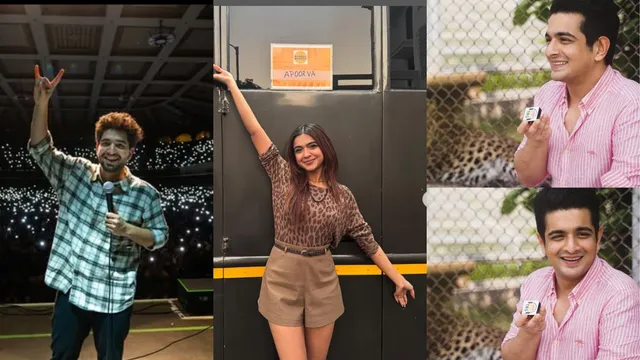- By Priyanka Koul
- Wed, 12 Feb 2025 02:47 PM (IST)
- Source:JND
Social media is once again buzzing with controversy after YouTuber Ranveer Allahbadia, popularly known as BeerBiceps, finds himself in the middle of a massive row over his remarks on the reality show, "India’s Got Latent". The issue has caught the attention of authorities, leading to multiple FIRs against the show and Ranveer Allahbadia in several states including Assam, Madhya Pradesh and Maharashtra. The issue even reached Parliament on Tuesday with lawmakers flagging the "obscenity" and "vulgarity" in the name of "Freedom of Expression", and demanding strict laws for the regulation of online content.
The Parliamentary Committee on Information Technology (IT) has also taken cognisance of the matter. However, a report by PTI stated that Ranveer Allahbadia is unlikely to be summoned by the Parliament panel.
Alongside Allahbadia, social media influencer Apoorva Mukhija, comedian Samay Raina and his show India's Got Latent have also come under the scanner with the Maharashtra Cyber Cell sending summons to 30 people including participants and judges. The FIR by Maharashtra Cyber Cell, filed under relevant sections of the IT Act, sought the removal of all 18 episodes of India's Got Latent from YouTube. Assam Police has also registered an FIR against Ranveer Allahbadia, Apoorva Mukhija, Samay Raina and others on Monday. The charges include “obscene acts” under Section 296 of the Bharatiya Nyaya Sanhita (BNS), 2023.
What Are India’s Laws on Obscenity in Digital Content?
The Bharatiya Nyaya Sanhita (BNS) 2023 and the Information Technology Act of 2000 provide India with a legal framework for regulating obscene content online.
- Section 294 of the BNS, 2023: Prohibits the sale, advertisement, and public exhibition of obscene material, including digital content. For first-time offenders, content deemed "lascivious" or appealing to "prurient interest" can lead to up to two years in prison and a Rs 5,000 fine.
- Section 67 of the Information Technology Act penalises the online publication or transmission of obscene material. This clause carries tougher implications, including up to three years of imprisonment and a fine of up to Rs 5 lakh for a first infringement.
Also Read: Kpop, Korean Skincare And More: 7 Interesting Facts About South Korea That Will Leave You Amazed
- Information Technology Act of 2000: Sections 79 (intermediary liability exemption) and 66A (the penalty for offensive messages, however, repealed in 2015) are important in content control.
- IT (Intermediary Guidelines and Digital Media Ethics Code) Rules, 2021: These guidelines introduced a tiered classification of social media platforms, setting compliance requirements based on their size and nature of content.
- Digital Personal Data Protection Bill (DPDPB): This bill establishes data protection standards, ensuring social media platforms handle user data responsibly with a focus on privacy and consent.
These laws aim to protect societal values while maintaining freedom of expression in the digital space. However, defining what qualifies as obscene remains a challenge.
How Courts Determine Obscenity?
Courts evaluate content as a whole, rather than in individual pieces. They examine the material's intent—whether it is artistic, satirical, or just for amusement purposes. A "community standards test" determines whether information is primarily appealing to prurient interests, which means it arouses excessive sexual desire. If it is discovered to be primarily sexual or offensive to the broader public, it may be considered obscene.
Public perception and cultural sensitivities are also important factors in such circumstances. As society standards shift, content that was once judged obscene may no longer be perceived in the same manner.

